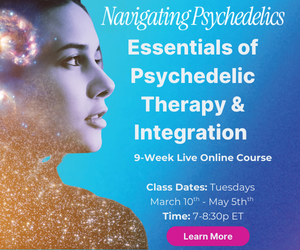
Health
PT420 – DanceSafe: Drug Testing, Fentanyl Myths, and the Importance of Consent
July 4, 2023
Featuring: Rachel Clark
In this episode, Alexa interviews Rachel Clark: Education Manager for DanceSafe, a public health nonprofit specializing in serving people who use drugs and their communities.

In this episode, Alexa interviews Rachel Clark: Education Manager for DanceSafe, a public health nonprofit specializing in serving people who use drugs and their communities.
As we move into the prime festival season, more people are going to be doing drugs, and the importance of harm reduction and drug testing becomes even more central to the experience. She discusses the complications of drug testing and how it’s more of an act of ruling substances out rather than determining purity; the fentanyl problem and its surrounding myths; how to identify and treat an overdose (and what not to do); Philadelphia’s struggles with Xylazine highlighting the problem with regional cross contamination; and DanceSafe’s “We Love Consent” and “Healing is Power” campaigns, which aim to open up the dialogue of true harm reduction and safe spaces outside of the substance alone.
Check out DanceSafe.org for more info, and use this link when you’re ready to make a purchase!
Notable Quotes
“You’re looking for red flags and not green lights. You’re not looking for confirmation that something is in your substance, you’re looking for a red flag about whether something is obviously or potentially not what you expected.”
“The three major symptoms of opioid overdose are very, very slow, shallow, and or stopped breathing, reduced or absent consciousness, and pinpoint/constricted pupils. And I want everyone to understand that the cause of opioid overdose is when your respiration, your breathing slows to the point that your tissues are not being oxygenated and perfused and your heart stops. That is the sequence. …If people understood that this is about a lack of oxygen because your breathing is too slow, I think that the public understanding of fentanyl overdose and opioid overdose would change a lot, because that, in and of itself, gives you a lot of information when you’re looking at someone and evaluating if an opioid could be involved.”
“Always communicate the limitations of what you know. Assume that you are missing information, because you are. And when you are reporting on something that you witnessed, share only what you saw and what you did, including timelines. This is a major, major note for anybody, especially people who work in EMS, because there have been a lot of very well-intentioned folks who have ended up spreading misinformation like wildfire by saying things as certainties instead of sharing observations.”
Links
Dancesafe.org: We Love Consent
Dancesafe.org: Healing is Power
Energycontrol-international.org
Check out the Lumenate app, and download it through the App store here!


